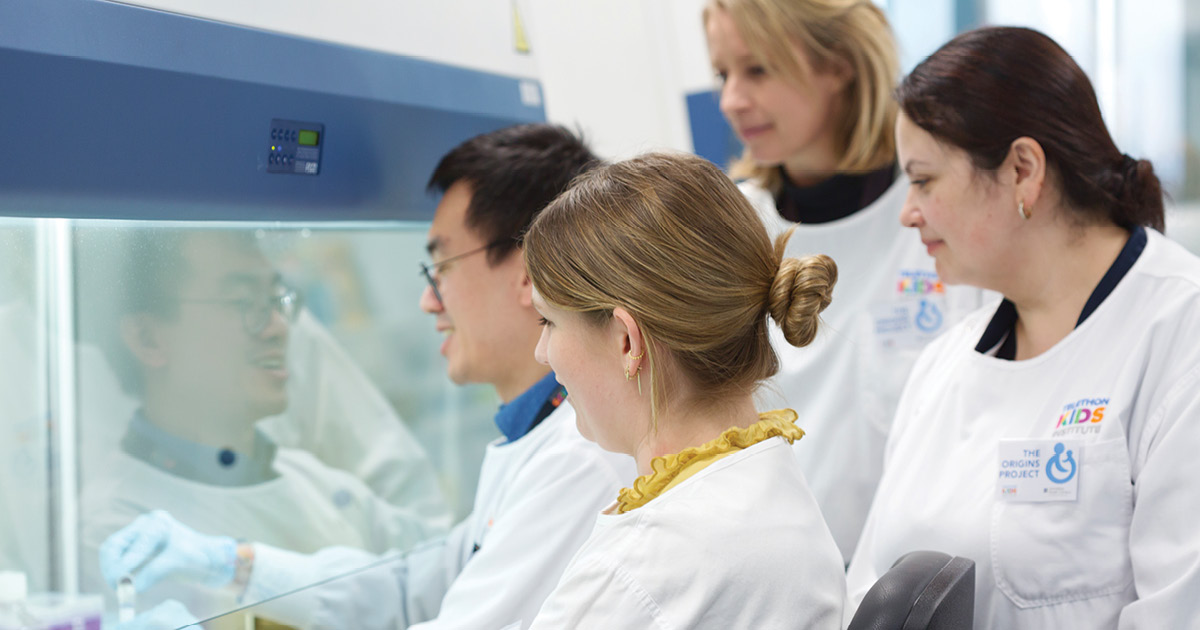Search
Showing results for "Professor"
Research
Determinants of culture success in an airway epithelium sampling program of young children with cystic fibrosisDeterminants of culture success through retrospective analysis of a program of routinely brushing children with Cystic Fibrosis airway disease
Research
Maladaptive parenting and child emotional symptoms in the early school yearsThe current study investigated whether being exposed to maladaptive parenting (high hostility and low warmth) and/or marital conflict in infancy is...

What if researchers could shop for different data to help uncover how, when and why chronic conditions such as asthma, obesity, allergies and poor mental health develop?

News & Events
Free panel discussion on permacrisis in mental healthEmbrace @ The Kids Research Institute Australia, in partnership with Rio Tinto, is hosting a free public panel discussion on permacrisis and the mental health of young people at Perth State Library on Thursday 9 November, with a keynote address from Professor Helen Milroy AM.

Research
Ear InfectionsMiddle ear infections are one of the main reasons that children visit a GP, are prescribed antibiotics and need surgery. Aboriginal children are particularly susceptible and commonly suffer from hearing loss which can affect speech and learning.

News & Events
Injury study aims to help frontline staff better recognise domestic violenceA The Kids Research Institute Australia research student concerned by the types of injuries he was seeing in emergency departments as a trainee doctor has spearheaded an Australia-first study.
Research
Science of the swab: optimising Strep A typing from clinical samplesAsha Dylan Janessa Tim Bowen Barth Pickering Barnett BA MBBS DCH FRACP PhD GAICD FAHMS OAM B.Tech, MPH, PhD BSc PhD PhD Head, Healthy Skin and ARF
Research
Whole-of-Life Inclusion in Bayesian Adaptive Platform Clinical TrialsThere is a recognized unmet need for clinical trials to provide evidence-informed care for infants, children and adolescents. This Special Communication outlines the capacity of 3 distinct trial design strategies, sequential, parallel, and a unified adult-pediatric bayesian adaptive design, to incorporate children into clinical trials and transform this current state of evidence inequity. A unified adult-pediatric whole-of-life clinical trial is demonstrated through the Staphylococcus aureus Network Adaptive Platform (SNAP) trial.
Research
Host-dependent resistance of Group A Streptococcus to sulfamethoxazole mediated by a horizontally-acquired reduced folate transporterDescribed antimicrobial resistance mechanisms enable bacteria to avoid the direct effects of antibiotics and can be monitored by in vitro susceptibility testing and genetic methods. Here we describe a mechanism of sulfamethoxazole resistance that requires a host metabolite for activity.
